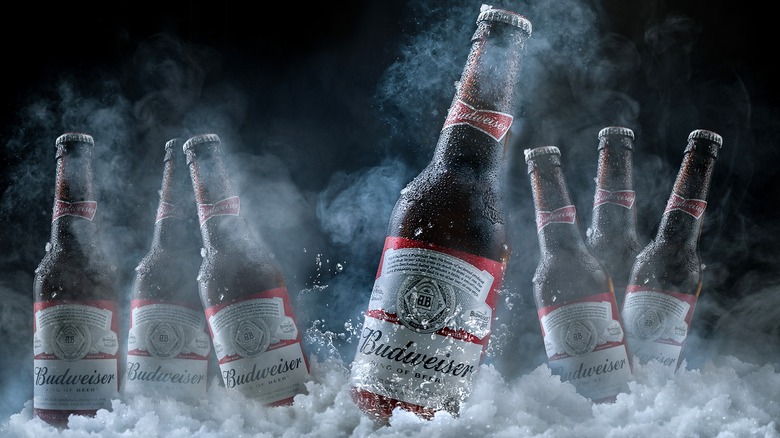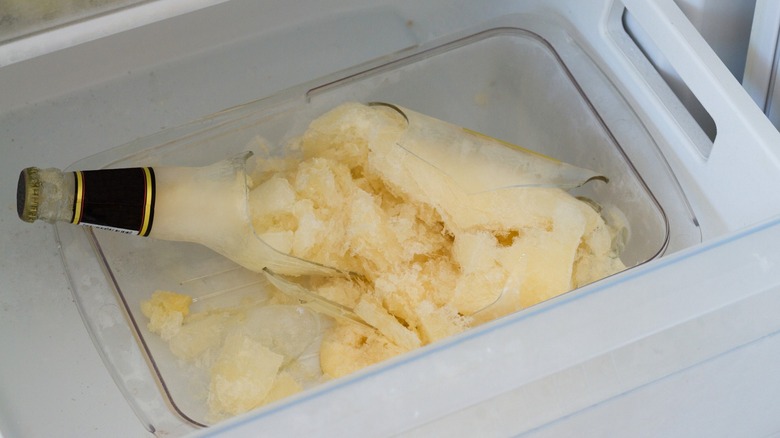At What Temperature Does Beer Freeze?
We may receive a commission on purchases made from links.
Occasionally, after a trip to the grocery store, something comes up and you forget to bring in an item or two from the car. It happens to everybody at some point, but the question is: was your prized merchandise from the supermarket affected overnight? If you left beer in the car during the months when the days grow shorter and the temperatures are getting lower, the answer depends on exactly how cold it got while you were sleeping and what kind of brew you brought home.
For a beer to freeze, the climate needs to drop below freezing because the ethanol that give you a buzz solidifies at a lower temperature than water. That means if it only got down to a brisk 32 degrees Fahrenheit overnight, your beer would just be ice-cold, but still liquid. However, if the temperature reaches 30 degrees or lower, your refreshments for the big game may be compromised.
Lighter pilsner-style domestic beers, like Coors and Budweiser, generally hover around 5% alcohol by volume (ABV) and will start to freeze at around 28 to 30 degrees. If you picked up a six-pack of hoppy IPAs with a higher ABV typical of that style, the temperature would need to plunge even lower for the beverage to ice over. Should you go outside to find your beer has become a slushy mess while you dreamt of enjoying it, don't panic. It can still be consumed, but it likely won't be quite the same.
What happens to beer when it freezes?
When beer freezes, the ethanol separates from the water. If you thaw your beverage, it should be perfectly safe to drink, but the separation will cause it to lose some of its flavor and mouthfeel. The beer might have become flat and if it was a hoppy brew, some of those tasty hop oils may be lost. However, if you purchased a growler of beer in a glass bottle such as this variety, it might be genuinely gone as it may have exploded due to increased pressure from expanding ice crystals. Obviously, broken glass is sign that something is not safe to consume.
The best thing you can do for your beer is to remember to take it inside and place it in a refrigerator at the proper temperature. During the colder months, you might be able to get away with storing them in a garage as long as the temperature never drops below freezing. Although, you will want to make sure it doesn't get too warm in the middle of the day. Only a scant few phrases in the English language can cause ale lovers to cringe in disgust faster than "warm beer."

